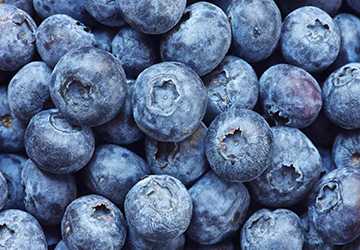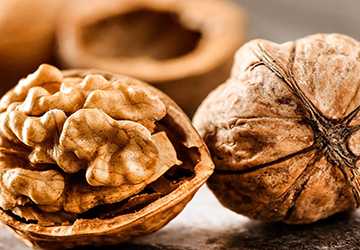Superfoods are nutrient-dense foods rich in vitamins, minerals, antioxidants, and other essential compounds. Including various superfoods can contribute to optimal health and provide a significant nutrient boost. Here's a guide to the top 10 superfoods that can enhance your overall well-being:

Blueberries:
Blueberries are renowned for their high levels of antioxidants, particularly anthocyanins, which give them vibrant colours. Antioxidants help combat oxidative stress and inflammation in the body. Blueberries also contain vitamins C and K, as well as fibre. Regular consumption of blueberries has been linked to improved cognitive function and cardiovascular health.
Salmon:
Salmon is fatty fish rich in omega-3 fatty acids, specifically EPA and DHA. These essential fatty acids are known for their heart-protective benefits and can contribute to brain health. Salmon is also an excellent source of high-quality protein, vitamin D, and B vitamins. Incorporating fatty fish into your diet, such as salmon, supports overall health and may reduce the risk of chronic diseases.
Kale:
Kale is a nutrient powerhouse packed with vitamins A, C, and K and minerals like calcium and potassium. It is also a rich source of antioxidants and fibre. Kale belongs to the cruciferous vegetable family and is known for its potential cancer-fighting properties. Including kale in salads, smoothies, or sautéed dishes provides a nutrient-dense addition to your meals.
Quinoa:
Quinoa is a versatile and nutrient-rich grain that contains all nine essential amino acids, making it a complete protein. It is an excellent source of fibre, vitamins, and minerals, including magnesium, iron, and zinc. Quinoa is gluten-free and can substitute for other grains in various dishes, contributing to a well-rounded and plant-based diet.
Avocado:
Avocado is a nutrient-dense fruit that is rich in monounsaturated fats, which are heart-healthy fats. It also provides abundant vitamins and minerals, including potassium, vitamins K, E, and B. Avocados can be a versatile addition to salads, sandwiches, and smoothies, offering flavour and nutritional benefits.
Turmeric:
Turmeric is a spice known for its active compound, curcumin, which has potent anti-inflammatory and antioxidant properties. Incorporating turmeric into your diet may help reduce inflammation and support joint health. It has also been studied for its potential benefits in preventing chronic diseases and supporting cognitive function—pair turmeric with black pepper to enhance the absorption of curcumin.
Chia Seeds:
Chia seeds are tiny nutritional powerhouses packed with fibre, omega-3 fatty acids, protein, and vitamins and minerals. They absorb liquid and form a gel-like consistency, making them a great addition to puddings, smoothies, or as an egg substitute in recipes. Chia seeds contribute to satiety, support digestive health, and provide essential nutrients.
Sweet Potatoes:
Sweet potatoes are nutritious root vegetables rich in vitamins A and C, potassium, and fibre. They also contain antioxidants, such as beta-carotene, which gives them their orange colour. Sweet potatoes can improve eye health, immune function, and overall well-being. Roast, mash, or incorporate sweet potatoes into various dishes for a nutrient boost.
Greek Yogurt:
Greek Yogurt is a protein-rich dairy product that also provides probiotics that benefit gut health. It is an excellent source of calcium, vitamin B12, and other essential nutrients. Choosing plain, unsweetened Greek Yogurt allows you to control added sugars while benefiting from its nutritional content. Enjoy Greek Yogurt as a snack, in smoothies, or as a base for savoury or sweet toppings.

Walnuts:
Walnuts are tree nuts rich in omega-3 fatty acids, antioxidants, and protein. They also provide essential nutrients such as magnesium, phosphorus, and copper. Regular consumption of walnuts has been associated with heart health benefits, including improved cholesterol levels. Add walnuts to salads and oatmeal or eat them as a snack to harness their nutritional benefits.
Tips for Incorporating Superfoods into Your Diet:
Diversify Your Plate:
Aim to include a variety of superfoods in your meals to ensure a broad spectrum of nutrients. A diverse diet supports overall health and helps meet your body's nutritional needs.
Experiment with Recipes:
Explore different recipes and cooking methods to keep meals exciting and flavorful. Superfoods can be incorporated into salads, smoothies, stir-fries, and even desserts, offering versatility in your culinary choices.
Mindful Eating:
Practice mindful eating by savouring your food's flavours, textures, and aromas. Being present during meals enhances the eating experience and promotes better digestion.
Plan Balanced Meals:
Plan meals that incorporate a balance of macronutrients (carbohydrates, proteins, and fats) and micronutrients (vitamins and minerals). A well-balanced diet ensures that you receive a comprehensive array of nutrients.
Choose Whole Foods:
Opt for whole, minimally processed superfoods to maximize their nutritional content. Entire foods retain natural fibres, antioxidants, and essential nutrients, providing more significant health benefits.
Stay Hydrated:
Hydration is a crucial aspect of a healthy lifestyle. Water supports overall well-being and aids in the absorption of nutrients. Drink water throughout the day, and consider incorporating hydrating foods, such as water-rich fruits and vegetables.
Consider Dietary Preferences:
Tailor your superfood choices to align with your dietary preferences, whether you follow a vegetarian, vegan, or omnivorous diet. There are superfoods suitable for various nutritional patterns.
Be Mindful of Portion Sizes:
While superfoods offer numerous health benefits, it's essential to be mindful of portion sizes. Eating in moderation ensures a balanced intake of nutrients and prevents overconsumption of calories.
Consult with a Nutrition Professional:
Consider consulting with a registered dietitian or nutrition professional if you have specific dietary goals or health concerns. They can provide personalized guidance based on your individual needs and preferences.
Listen to Your Body:
Pay attention to your body's signals of hunger and fullness. Eating intuitively allows you to respond to your body's nutritional needs and fosters a healthier relationship with food.
Conclusion:
Incorporating superfoods into your diet can significantly contribute to optimal health and provide a nutrient boost. From berries and fatty fish to leafy greens and nuts, these superfoods offer a wealth of vitamins, minerals, antioxidants, and essential nutrients. By embracing a varied and mindful approach to eating, you can enjoy a flavorful and nutritionally rich diet that supports overall well-being. Remember that a holistic and balanced lifestyle, including regular physical activity and stress management, complements the benefits of a nutrient-dense diet, promoting long-term health and vitality.



